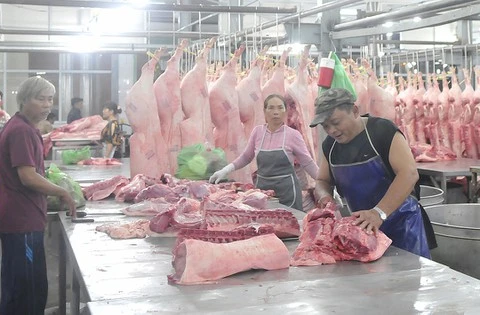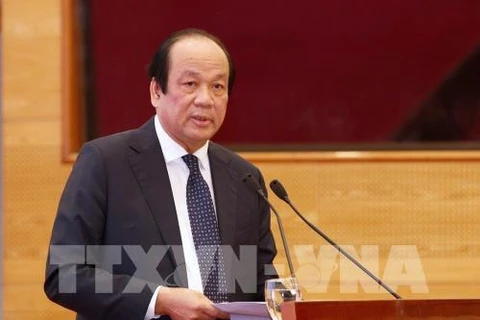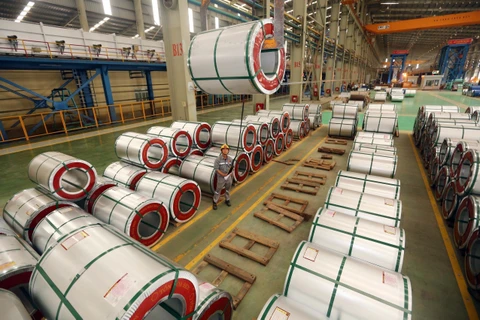Hanoi (VNA) – Vietnam recorded a year-on-year increase of 2.79 percent in the consumer price index (CPI) in 2019, the lowest level in the past three years, the General Statistics Office (GSO) said on December 27.
The CPI in December rose 1.4 percent from the previous month and 5.23 percent from the same period of 2018. In the fourth quarter, it expanded 3.66 percent from a year earlier.
GSO General Director Nguyen Bich Lam considered 2019 as a successful year in terms of inflation control as the CPI growth rate has been kept at under 4 percent amid the price hikes of almost all commodities managed by the State like electricity, medical services and school fees.
Director of the GSO’s Price Statistics Department Do Thi Ngoc said strong consumption demand in the first two and final months of the year to prepare for big holidays boosted prices of some consumer goods compared to 2018, including food 5.08 percent; beverages and cigarettes 1.99 percent, apparel 1.7 percent, public transport services 3.02 percent, and package tours 3.04 percent.
Notably, pork prices climbed 11.79 percent on average, which is one of the main contributors to the high CPI growth in the final months.
Prices of essential products such as fuel and steel in the world have also been on the rise. As a result, the import price index in 2019 increased 0.59 percent from last year, the export price index up 3.01 percent, the industrial producer price index up 1.25 percent, and the agro-forestry-fishery producer price index up 1.31 percent, Ngoc noted.
However, there are also some factors helping to curb the CPI rise, including the declines in petrol, gas and sugar prices which have been aligned with the world market, the GSO said.
It added under the Government’s direction, ministries, sectors and localities have coordinated closely and carried out synchronous solutions to ensure supply-demand balance, stabilise prices in some localities, and flexibly set reference exchange rates.
This year’s core inflation, which is CPI excluded grain food, fresh foodstuff, energy and the State-managed medical and educational services, increased 2.01 percent from 2018.
The general inflation grew at a faster pace than the core inflation, reflecting that price changes were mainly driven by higher prices of food, medical and educational services, and petrol. The core inflation in 2019 also shows that the monetary policy remains stable, Lam noted./.
VNA

























